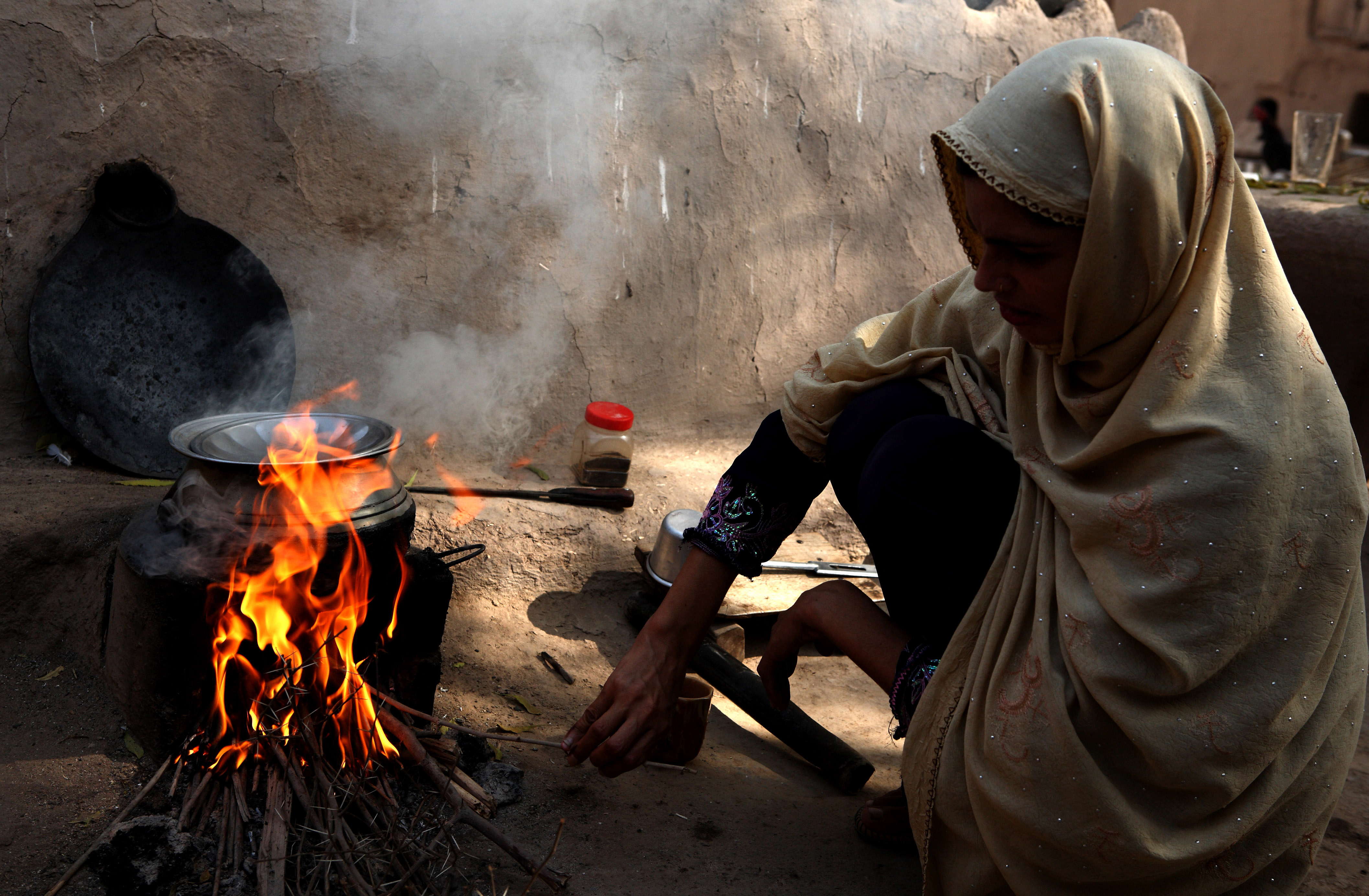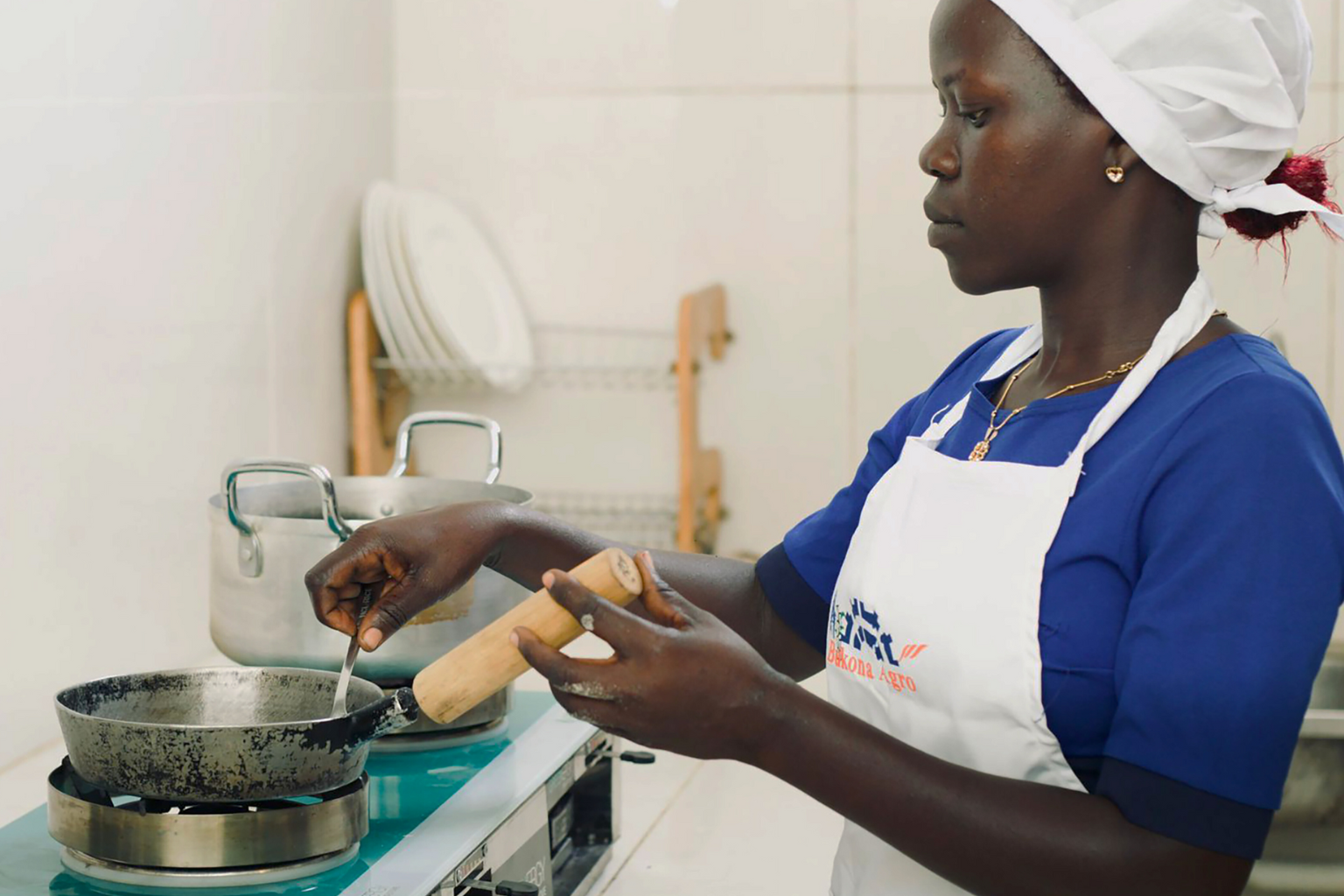Rwanda eyes bioethanol as sustainable fuel alternative to advance clean cooking agenda and reduce emissions
During a national workshop facilitated by GBEP, stakeholders discussed strategies to address barriers to bioethanol adoption, emphasizing the need for private sector engagement, enhanced regulatory frameworks and financing mechanisms, and awareness-raising initiatives to improve clean cooking access across Rwanda.
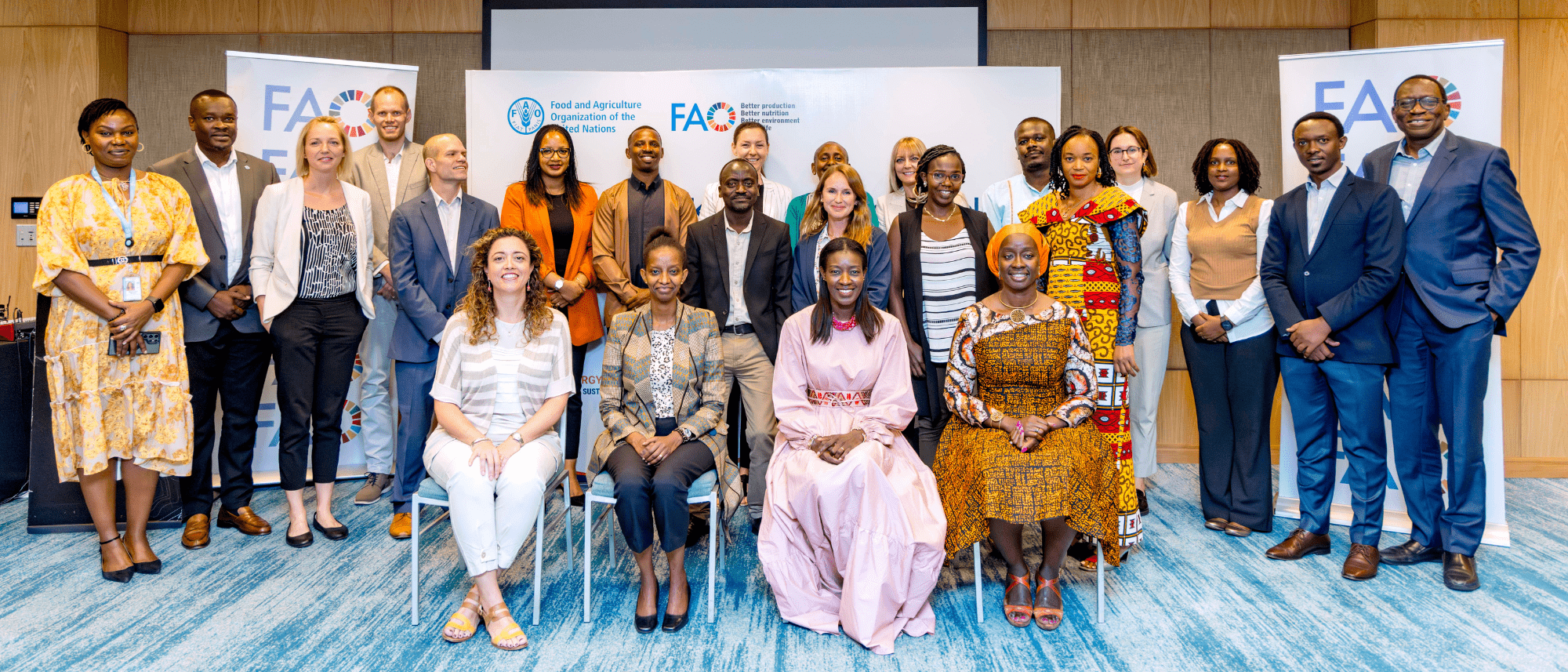
KIGALI, Rwanda – A national dialogue organized by the Food and Agriculture Organization of the United Nations (FAO), through the Global Bioenergy Partnership (GBEP), underscored the multifaceted benefits of bioethanol as a clean cooking fuel alternative to traditional woody biomass and fossil fuels, highlighting its potential role in Rwanda’s efforts to achieve universal access to clean cooking and reduce emissions by 38 percent by 2030.
Opening the event, FAO Representative for Rwanda, Coumba Dieng Sow emphasized the critical importance of transitioning to clean cooking solutions, noting that 2.3 billion people worldwide still lack access to clean cooking technologies, with 800 million in Africa alone.
With representatives from Rwanda's Ministries of Environment, Infrastructure, and Agriculture, eight international organizations, two multilateral financial institutions, four private companies and two non-government organizations, the workshop, funded by the United States Department of Agriculture - Foreign Agricultural Service, aimed to identify actionable strategies to tackle the challenges surrounding the adoption of bioethanol and fostering collaboration to improve access to clean cooking solutions in the country.
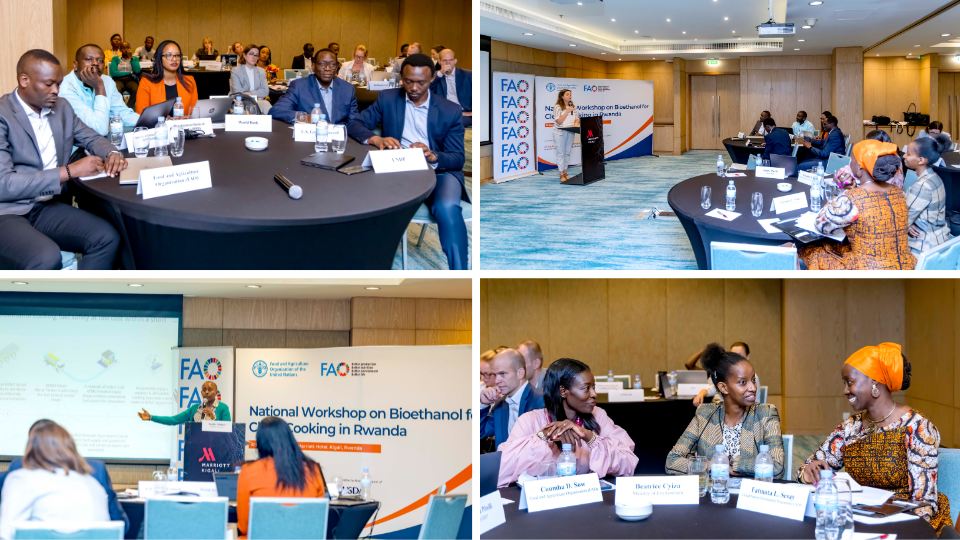
Barriers to clean cooking adoption in Rwanda
Access to modern cooking fuels remains limited in Rwanda particularly in rural areas due to the high upfront costs of both clean fuel and related cookstoves. Cultural resistance is another challenge, as many Rwandans are accustomed to traditional cooking methods, and there is often hesitancy to switch to cleaner cookstoves and fuels due to fears of fires and unfamiliarity with these technologies.
Infrastructure limitations, especially in manufacturing and distribution, are also a major barrier, as well as the lack of a regulatory framework that supports the safe storage, distribution, and usage of bioethanol.
At present, there are only a few players working on introducing bioethanol stoves and fuel to Rwandan communities, such as KOKO Networks which has pioneered bioethanol distribution in Kenya and recently expanded to Rwanda.
KOKO’s model involves sourcing ethanol from regional markets, storing it in petrol stations, and distributing it to consumers via smart automated machines. As of today the distribution is limited to urban areas. By using carbon credits to subsidize bioethanol prices, KOKO keeps costs low for its consumers.
Another initiative is the Reduce Climate Impact of Cooking (ReCIC) project, which aims to reduce the environmental impact of cooking through the distribution of 500,000 improved cookstoves to households and introduction of alternative fuels such as pellets and briquettes. The project which runs until 2025 saves an estimated 0.2 million tons of CO₂ per year.
While clean cooking is a priority for Rwanda and while bioethanol could help facilitate a transition away from firewood and charcoal, Ministry of Environment Permanent Secretary Beatrice Cyiza stressed that large-scale bioethanol production would not be feasible for Rwanda, citing the extensive land and water requirements and the country’s national master plan which allocates up to 40 percent of the country’s lands for agriculture to ensure food security for its growing population.
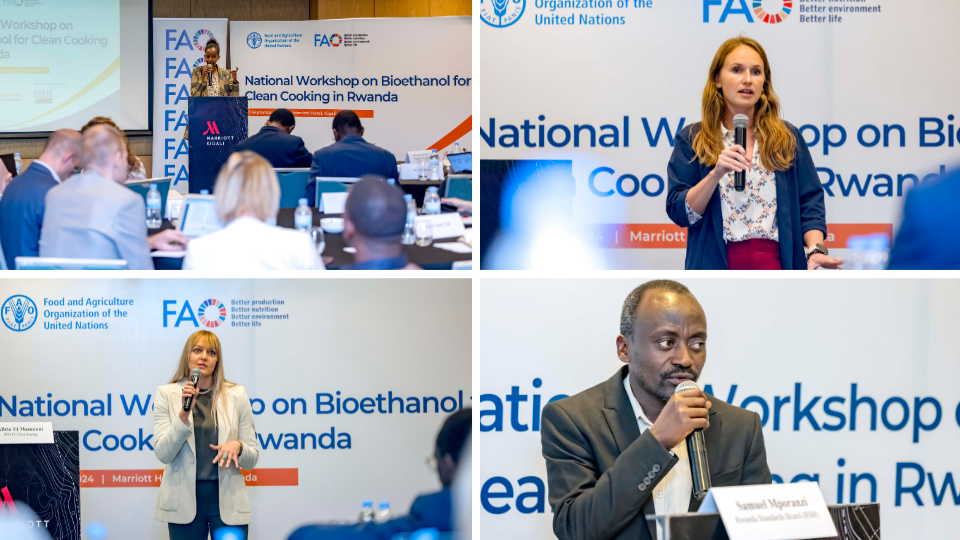
Strategic pathways for bioethanol integration in Rwanda’s clean cooking agenda
Currently, about 23,000 households in Rwanda use ethanol for cooking. Experts noted that Rwanda needs to scale up demand significantly to make local bioethanol production viable. A pre-feasibility study would be required to assess the potential of local bioethanol production and the consequent impacts on natural resources and food security.
Stakeholders agreed that to not compromise food security, research should also look into the most suitable and sustainable sources of feedstock for possible local bioethanol production, such as agricultural waste like rice straw and cassava peels.
Participants also emphasized the need for comprehensive standards that govern bioethanol and stove quality and safety to help enhance consumer confidence while fostering market growth. Rwanda has already adopted an international standard for liquid ethanol (ASTM E3050) and a national standard for ethanol gel (DRS 574) and is testing ethanol stoves.
Since bioethanol and clean cooking are deemed new in Rwanda, private sector investment remains limited due to high perceived risks. To address this, various financing solutions are being explored, such as the Development Bank of Rwanda’s Clean Cooking Results-Based Financing (CC-RBF) project, which offers subsidies to small companies lacking collateral and subsidies to consumers allowing structured payments for clean cooking technologies.
The importance of educational and behaviour change campaigns was also discussed as key to shifting people's perceptions, influencing community acceptance and adoption and driving demand for bioethanol and clean cooking stoves.
Rwanda's clean cooking goals are intertwined with its national targets for reducing greenhouse gas emissions and promoting sustainable development. While challenges exist, including the need for infrastructure and investments, the commitment from stakeholders indicates a clear pathway forward. With continued collaboration, Rwanda can harness bioethanol to achieve its clean cooking and climate goals, while improving health, protecting the environment, and enhancing energy access for all its people.

